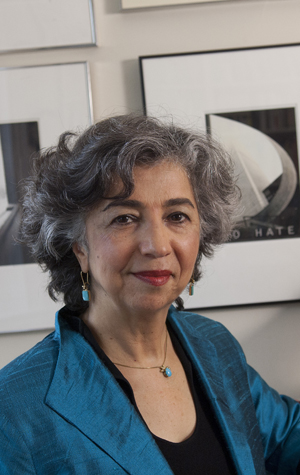BU faculty and staff on what’s changed in decade since
Edited by John O’Rourke
By sheer coincidence I was teaching Sophocles’ Antigone in my course on conflict resolution on that fateful September day that changed the world—alas not for the better, at least not so far in America.
Clik here to view.

Shahla HaeriCAS associate professor of anthropology and author of No Shame for the Sun: Lives of Professional Pakistani Women; has written extensively on religion, law, and gender dynamics in the Muslim world.
A major theme in this undying tragedy, written some 400 years before Christ, has to do with the role of a leader at times of crises and chaos. Tragedy becomes inevitable in the absence of a leader’s transcendental vision and wisdom, and his inability—or unwillingness—to negotiate intractable conflicts. The catastrophe that struck America provoked heartfelt sympathy for the Americans and universal condemnation for the perpetrators. But the global goodwill dissipated just as quickly as it had been spontaneously formed when our leaders lost sight of their initial moral objective and diverted their attention from reconstructing Afghanistan to invading Iraq.
As the wars in Afghanistan and Iraq dragged on, our leaders dug their heels deeper in the quagmire. Lost in the fog of war, political vigilantism, isolationism, and ideological intolerance replaced American democratic idealism, and corporate greed rampaged our economy. While the election of an African American president revived many Americans’ hope of moving forward, surprisingly, it awakened dormant racism among some, inflamed ideological divisions and social cynicism. Ironically, President Obama’s election and leadership have inspired millions of Arab youth to revolt against their own despotic leaders in hopes of institutionalizing democratic principles.
A good and wise leader inspires globally, if not always locally.

